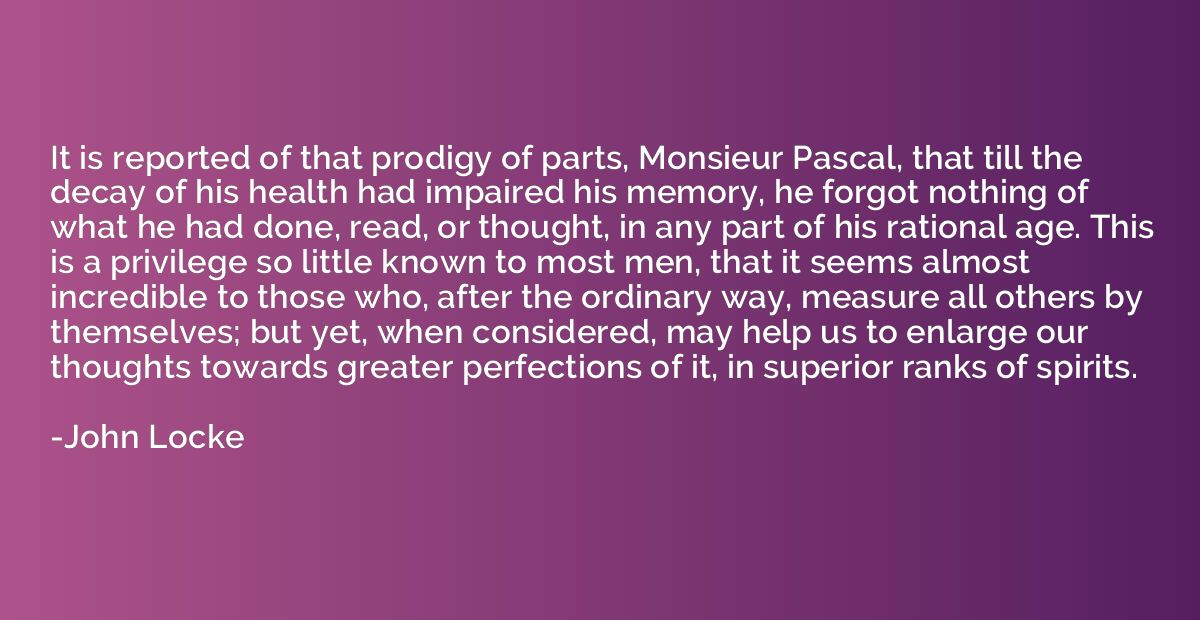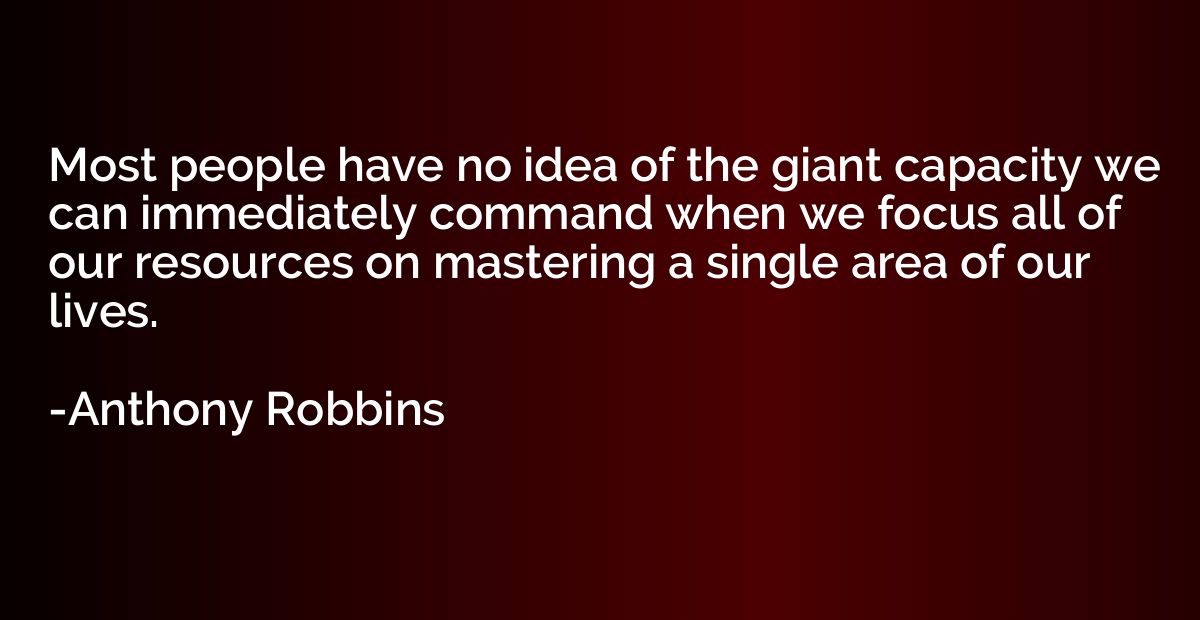Quote by John Locke
It is reported of that prodigy of parts, Monsieur Pascal, that till the decay of his health had impaired his memory, he forgot nothing of what he had done, read, or thought, in any part of his rational age. This is a privilege so little known to most men, that it seems almost incredible to those who, after the ordinary way, measure all others by themselves; but yet, when considered, may help us to enlarge our thoughts towards greater perfections of it, in superior ranks of spirits.

Summary
The quote highlights the exceptional memory of Monsieur Pascal, a highly intelligent individual. It states that until his health deteriorated, he had the ability to remember everything he had done, read, or thought during his rational age. This extraordinary memory is a privilege that is not commonly possessed by most individuals. The quote challenges the perception of ordinary individuals who tend to assume that others have similar capacities as themselves. It suggests that such remarkable memory capabilities may exist in higher levels of intelligence, inspiring us to consider and envision greater potential in the realm of memory and mental abilities.
Topics
Mind
By John Locke














